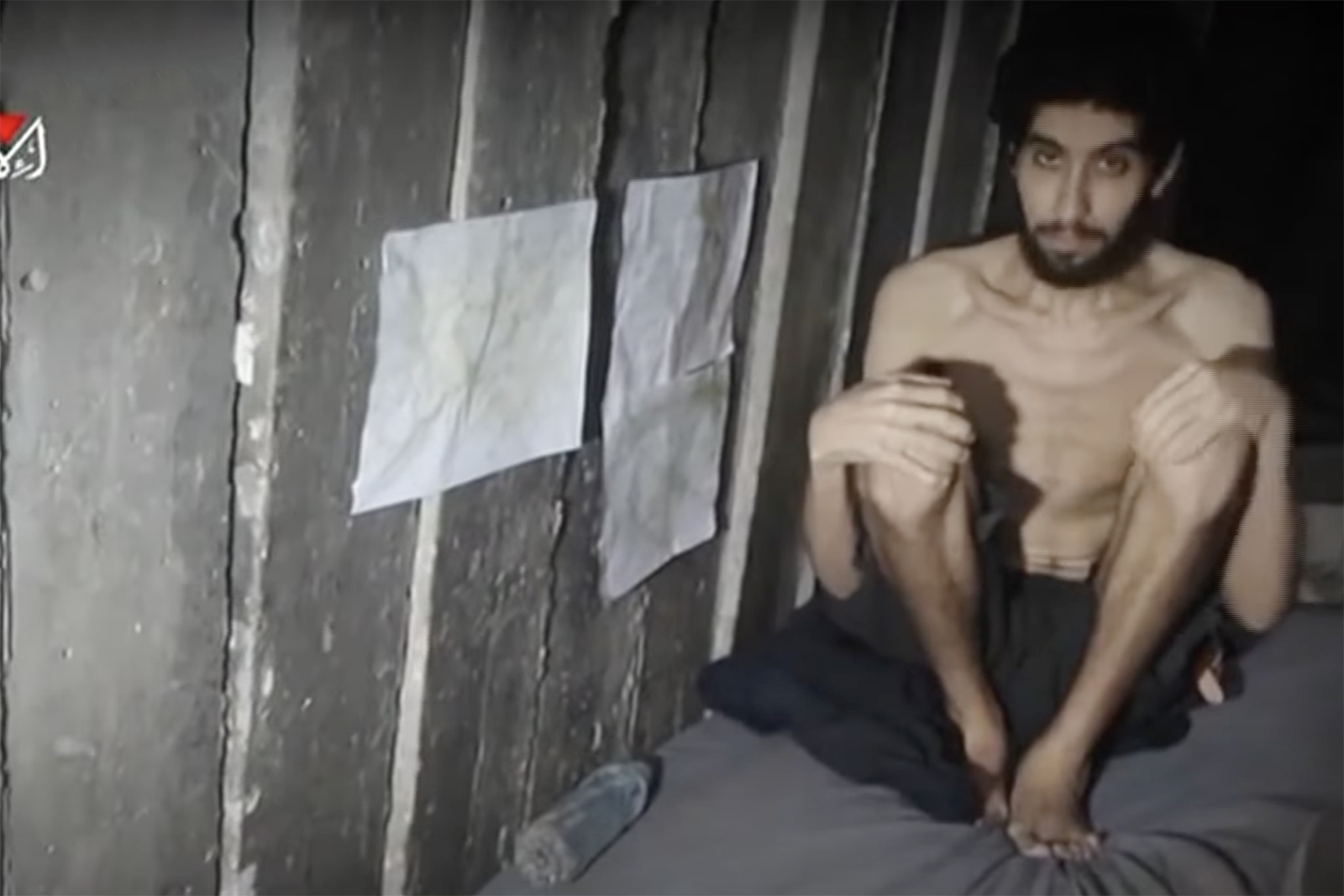
(RNS) — You might be asking: Who is Evyatar David?
That is part of the problem.
Let’s start with Gaza — with those images that tear at our hearts and souls.
I have been asking myself: WWLT — what would Levinas think?
I am referring to the late French Jewish thinker Emmanuel Levinas (1906-1995). He taught that our societal obligations begin the moment we see someone else’s face. For Levinas, the face of the Other — the literal human face — calls us into ethical responsibility. Ethics begins not with abstract reasoning, but with how we see — or fail to see — the humanity of the Other.
As Jews, it all begins with seeing. Seeing is our moral education. To never turn our faces from suffering — neither when it is our own, nor when it is the suffering of others.
That is what makes Judaism so morally demanding.
The images of Palestinian children buried under rubble: We can’t not see them.
And we also can’t not see Rom Braslavski, 21, and Evyatar David, 24. They are among the remaining Israeli hostages in Gaza. They are being starved by Hamas. Hamas forced Evyatar to dig his own grave and recorded that atrocity on film.
In the video of Evyatar, his voice was so weak that his own father could not recognize it. “It looks like pictures we all know from history class 80 years ago,” said Evyatar’s brother, Ilay.
Meaning, of course, the Holocaust. How could it not evoke the Holocaust? Jews forced to dig their own graves … images of Jews, starved and humiliated, with their ribs exposed.
When was this video released? The irony could hardly have been more callous. It coincided with Tisha B’Av, the darkest day on the Jewish calendar. A day that mourns the destruction of the Temples in Jerusalem; the expulsion from Spain in 1492; and other dark days in Jewish history.
In at least one case, those images stirred international leaders to action.
As reported by The Times of Israel:
The European Union, Britain, France and Germany on Sunday condemned propaganda videos of two emaciated Israeli hostages published by Gaza terror groups last week, with leaders insisting Hamas disarm and play no role in the future of the Strip … French President Emmanuel Macron said the release of the videos showed the captors’ “inhumanity without bounds” and “abject cruelty.”
“We must have the total demilitarization of Hamas, its complete exclusion from any form of governance and the recognition of Israel by the state of Palestine,” said Macron, who has vowed to recognize a Palestinian state in September, angering Israel.
Thank you, EU and President Macron, for this condemnation.
My question is: Where are the voices of the pro-Palestinian left?
Why are they ignoring this?
It is quite simple. Because when Jews are the victims, the calculus shifts. Somehow, Jewish suffering still remains negotiable — conditional, less photogenic, less click-worthy, less useful in the machinery of political outrage.
This is equally true of the celebrity critics of Israel’s actions.
Take Mandy Patinkin, for example, and his impassioned, teary criticism of Israeli actions in Gaza.
But after Oct. 7, what did the world hear from Mandy?
These are the words of my friend Peter Himmelman:
In the immediate aftermath of October 7, 2023 — when Hamas slaughtered over 1,200 people, raped women, mutilated bodies, burned children alive, and kidnapped the elderly — Mandy Patinkin said exactly nothing. No post. No video. No statement of sorry, solidarity, or outrage.
And now, Mandy? Can you spare a word for Evyatar? And if not, why not?
Someone once said: “In the warmest of hearts, there is a cold place for the Jews.”
Because, as the left would put it, Jews are “white,” “privileged” and “occupiers,” even as they bury children killed by rockets and pray for hostages whose fate is uncertain. In the Manichean worldview of the left, there is absolute good and absolute evil, absolute light and absolute darkness, and it is clear where the Jews reside.
Levinas understood. He would have understood this failure is a failure of vision — a refusal to “see” Evyatar David as a fully human Other, as a person whose suffering must command our moral response.
And yet here we are, watching images of a Jewish boy being starved by a regime that calls for and celebrates Jewish death. Hamas does not merely fight Israel — it seeks to annihilate Jews. Its charter quotes the blood libel. Its theology is not resistance — it is elimination.
When I look at Evyatar David, I do not only see a hostage.
I see my family — my extended family, gunned down in the forest of Ponary, outside of Vilnius, in the summer of 1944.
It’s all about seeing.
We see Gaza, and we bewail Gaza. And we should.
But if you cannot see Evyatar, if your moral compass points only in one direction — if it cannot hold Jewish suffering in the same breath — then it is broken.
If we cannot see the suffering of Evyatar David as an outrage, then we are not talking about justice anymore. We are talking about selective empathy, and that is the first step toward moral corruption.
Be warned: When you choose which victims deserve your voice, you betray not just the Jews, but the very idea of universal human dignity.
I am not a doctor (nor, as the joke has it, do I play one on television).
But I know something about cardiology.
I know that an enlarged heart is medically dangerous.
And I also know that a shrunken heart is morally dangerous.
Everyone’s hearts need to expand just a little more.
